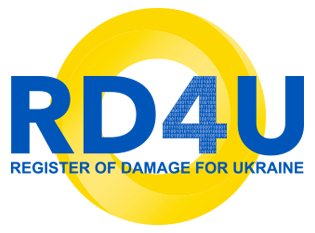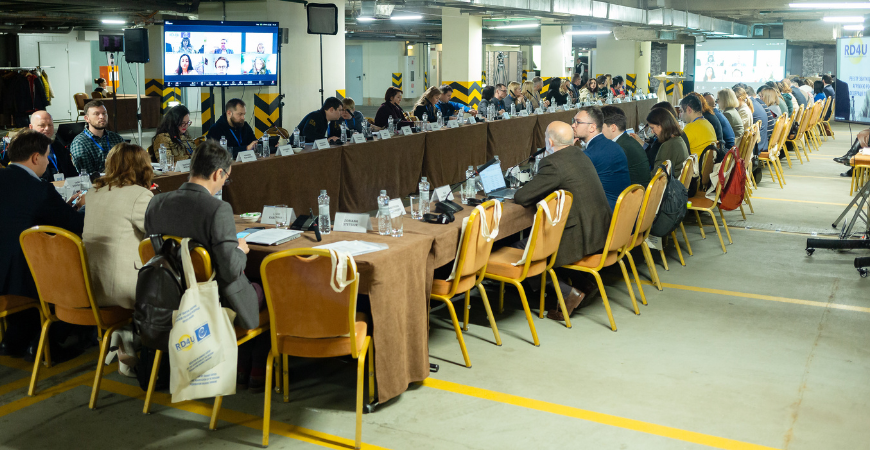On 16 December 2024, the Register of Damage Caused by the Aggression of the Russian Federation against Ukraine organised in Kyiv and online the first working meeting of its Civil Society Coordination Platform.
The meeting brought together up to 70 representatives from more than 40 institutions, including civil society organisations (CSOs), national and international partners, and representatives of the Government of Ukraine. Throughout the discussions, participants expressed their strong interest in and commitment to active collaboration with the Platform, which embodies the Register’s victim-centred approach to protecting the rights and addressing the needs of victims of Russia’s aggression against Ukraine.
Highlighting the role of the CSOs in the Register’s activities, the Executive Director of the Register, Markiyan Kliuchkovskyi, stated that: “The execution of our mandate and outreach efforts would not be possible without the participation of all the CSOs involved in the Platform, and we deeply rely on your support. This cooperation is a two-way process: we count on you to help disseminate information about the Register and support capacity building in Ukraine, while we are also eager to hear your insights. Your experiences in engaging with potential claimants, identifying pressing questions, and highlighting issues that need addressing are invaluable. We look forward to this comprehensive and practical dialogue.”
The Director of the International Cooperation and Representation Department, Ministry of Justice of Ukraine, Zakhar Tropin, underlined the importance of “synchronising national support mechanisms to victims of the aggression with the international compensation mechanism which is called to ensure accountability of the aggressor State for the war against Ukraine.”
In addressing the audience, USAID Justice for All Activity Chief of Party, David Vaughn, noted that since the beginning of the full-scale invasion of Ukraine, the USAID Justice for All Activity has been supporting its Ukrainian partners in creating and promoting effective international and national compensation mechanisms to develop sustainable solutions for the recovery of Ukraine. He also assured that "we remain a reliable resource for the Register and civil society."
Advocacy Director of Human Rights Centre “ZMINA”, Olena Lunyova, expressed a willingness, generally shared by other participants of the meeting, to support potential claimants before the Register and to participate in joint outreach activities addressing the needs to be identified by the Register.
During the event, the Register introduced newly approved categories of claims and addressed practical questions concerning the claims category currently open for submission of claims through Diia.
Participants focused on defining cooperation modalities within the Platform and setting future priorities. It was agreed that the Register will aim to provide Platform members with up-to-date information about its activities and future capacity-building initiatives, and to enable CSOs to effectively participate in the Platform and raise awareness of the Register’s mandate and claims process, while providing appropriate support to the victims of Russia’s aggression.
The RD4U’s Civil Society Coordination Platform already has a large number of members and remains open to all CSOs interested in actively contributing to the Register’s efforts to reach out to claimants and support them throughout their journey of submitting claims to the Register.
The RD4U’s Civil Society Coordination Platform, launched on 31 October, aims to unite the efforts of the Register and CSOs working with war-affected individuals and communities. By fostering collaboration, the Platform will enhance awareness-raising campaigns both in and outside Ukraine regarding the Register’s mandate, activities, claim categories, and claims submission procedures.




